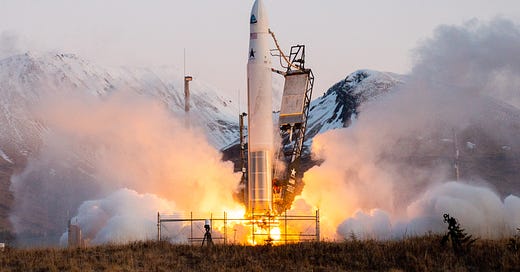Chris Kemp does not care for the ending to HBO’s documentary Wild, Wild Space.
In the last scene of the film, a handsome, erudite pundit is describing the financial perils being faced by Astra Space, the rocket company co-founded and run by Kemp. It’s noted that Astra’s cash has evaporated as it scrambles to complete Rocket 4 – the product on which the company’s future hinges. The financial markets have soured on Astra and on New Space companies in general, and the prospects of raising more capital appear beyond grim. And so, the pundit declares that despite Astra and Kemp’s best efforts, “It just didn’t work out.”
The film debuted in July of 2024, and Kemp wishes that the last line contained a “yet” because he always believed that Astra had a comeback in it. And he’s now ready to talk about said comeback.
“As the movie came to a close we were having a really tough time,” Kemp says. “We were very much at an inflection point where I think there were a lot of people, employees and investors and customers that were quite excited about the next chapter. So, I guess what this is about is about the next chapter that really starts at the last frame of the movie.”
During the height of the SPAC craze, Astra raised hundreds of millions of dollars and had a value of $2.1 billion after going public. By mid-2024, 99 percent of that value had disappeared, and Kemp and Astra co-founder Adam London made the bold, unexpected move to take the company private. Many people thought the founders were nuts to try and keep Astra as a going concern because it seemed so unlikely that it would find a way to raise money given the company’s struggles to launch rockets consistently and the large investment required to finish Rocket 4.
Well, since going private, Astra has raised $80 million, Kemp says. The money was used to buy out shareholders, pay some hefty transaction and legal fees, remove secured lenders and refinance the company. “We then subsequently won a big Department of Defense contract and then we subsequently have gotten the company to have a profitable satellite engine business and we're taking those profits, we're reinvesting them back in the launch business and we're now in a really good position,” Kemp says. “We can continue to do this until we put a rocket back on the pad, even if we don't raise any more capital. And that's a remarkable position to be in given where we were a year ago.”
Keep reading with a 7-day free trial
Subscribe to Core Memory to keep reading this post and get 7 days of free access to the full post archives.





